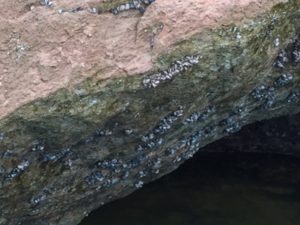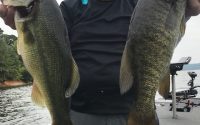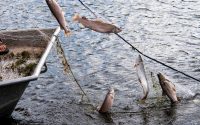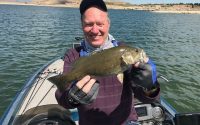Deer Creek Pronounced “Mussel Free”

The big fishing news this week is that Deer Creek Reservoir, a popular fishery and recreational destination located a mere 20 miles up Provo Canyon, has been declared “mussel free” after three long years of stiff regulations, boat inspections, decontaminations, and other inconveniences meant to the spread of quagga and zebra mussels.
Mussel History
Many of you have already seen or at least heard reports about the declaration but you may not know how serious this threat was, the herculean task that was undertaken to face the challenge head-on, and the interagency cooperation that resulted in the lifting of restrictions.
In 2007, quagga and zebra mussels were found in Lake Mead, the next reservoir below Lake Powell along the Colorado River. It is believed they entered the U.S. on the hulls and in ballast water of freighters coming from ports in Eastern Europe. From there, they migrated to the south and west, and eventually landed in the Western U.S.
Water Managers and officials from several government and private agencies and organizations began developing ways to stop or at least slow down the spread of mussels in the West. States and localities passed laws allowing for boat inspections, fines, and actual confiscation of boats and trailers found with mussels as a result of highway-side or border inspections by law enforcement.
Why it Matters
Why all the fuss? The short answer is that quagga and zebra mussels are “invasive” nonnative species that can damage fisheries, cause havoc to pumps, pipes, boat motors, docks, and cost millions and millions of dollars to treat and manage.
The challenge in the fight to slow the spread of mussels was and still is (to some extent) the lack of interstate cooperation between government agencies. State officials continue to fight with Federal officials, departments fight with departments, and it seems that “turf wars” were and are still being fought around the West.
Even last year, while trailering my boat through Idaho, Montana, and Wyoming to get to Yellowstone Lake, I had to stop three times, show my paperwork to three different agencies, allow for a serious boat inspection three separate times, and still had to go through one last major inspection at the launch ramp at Bridge Bay Marina. Not a single agency accepted another state’s paperwork.
Suffice it to say that just because the restrictions on Deer Creek have been lifted, the fight to slow the spread of mussels throughout the West is still raging and the same lack of cooperation between government agencies for whatever reasons are real and very depressing.
Joint Agency Effort
But, at least in Utah (and specifically) through the combined efforts of the Legislature, boaters and anglers, the Division of Wildlife Resources, Utah State Parks, the Bureau of Reclamation, the Provo River Watershed Council, and the Central Utah Water Conservancy District, a plan was formulated, put into motion and strictly followed, resulting in a huge success in the ongoing battle against quagga and zebra mussels.
My hat’s off to the agencies and private interests that pierced the turf war of funding, and stayed focused on the prize, a clean bill of health for Deer Creek.
In 2018, you will not need to decontaminate your boat when leaving Deer Creek, and you will be able to launch on other bodies of water without the same level of scrutiny as in the past.
What Can You Do?
HOWEVER, the protocols learned should stay with you long into the future.
- Clean, drain, and dry your boat each time you leave a reservoir.
- Remove your drain plug when traveling.
- Obtain your yearly mussel awareness certificate from the DWR and always display it when launching.
- Remember that traveling out of state will require more inspections and paperwork.
The fight to stop the spread of quagga and zebra mussels rages on. Lake Powell is infested with quagga mussels and is a huge concern for the ultimate spread throughout the state. Follow the protocols when leaving Lake Powell, and as the advertising campaign states, DON’T MOVE A MUSSEL.










